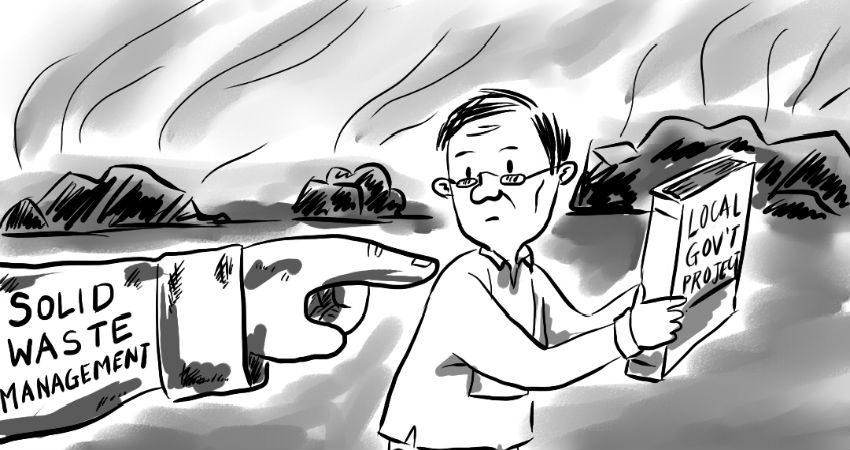Republic Act (RA) 9003 otherwise known as the Ecological Solid Waste Management Act of 2000 mandates all local governments to close the operation of their open dumpsites and replace the same with sanitary landfills or controlled dump facilities within a period of 10 years from the effectivity of the law to ensure the sustainable preservation and protection of the environment and provide for a healthy environment. Further, local governments are also mandated to formulate their 10-year solid waste management plans in consultation with concerned stakeholders and submit the same to the National Solid Waste Management Commission (NSWC) for review and approval.
Nearly two decades had passed since the implementation of the noble law but there are still numerous local governments that have not satisfactorily complied with the explicit provisions of the law on the put up of their own sanitary landfills or controlled dump facilities or even their required 10-year solid waste management plans. Local officials had changed several times in almost all local government units in the entire country for the two decades that the law had been enforced but most local governments had difficulty in complying with the provision for them to address the solid waste management concerns of their areas of jurisdiction.
Among the common reasons uncovered on the failure of local governments to comply with the pertinent provisions of the solid waste management law include the lack of suitable land within their jurisdiction to put up the feasible facility, inadequate funds to bankroll short, medium and long-term solutions to the garbage disposal problems in their places, conflict on the ownership of the lands identified for such purpose, and the stringent requirements in the qualification of the technology provider for various technologies to convert waste to other forms of energy.
Let us all understand that the 10-year solid waste management plan of a certain locality frames the solid waste management programs of the local government. It is a product of an extensive study on the short- medium and long-term solutions to the garbage issues in certain localities, apart from being supported with the required budget for the realization of such interventions and partnerships to ensure the completion of such projects in due time. The plan is the basis for the local legislative body to decide on corresponding funds for the implementation of the outlined interventions to effectively and efficiently address the garbage issue in a certain place. The plan is also a product of the City Ecological Solid Waste Management Board from where it shall emanate before being submitted to the local legislative body for approval, aside from being reviewed by the regional offices of the Environmental Management Bureau (EMB) for endorsement to the NSWMC for further scrutiny. Once the plan has been stamped approved by the NSWMC, local governments can detail the plan and amendments can be made within certain durations of the implementation to fit in the needed updates, especially on the technology for solid waste management.
Deviation from the contents of the plan will warrant the justifications and explanations from the regulatory agencies thus local governments should be extra careful in the planning, programming and eventual implementation of programs that are not within the approved solid waste plan to avoid being subjected to the appropriate cases by parties of interest. While it is true there is no official that will not work for the welfare of his or her constituents, it is important for everyone to understand there are various difficult and painful processes that should be strictly observed before coming out with the ultimate solution. We branded as difficult and painful because it is constrained by time not within the control of the local government but within the jurisdiction of others.
What is clear is all local governments prioritized dealing with their own solid waste management problems but if they cannot do so, they partner with their neighboring local governments for the establishment of clustered waste disposal facilities that pass the standards. It is important for the individual and collective efforts to simply comply with the segregation of waste at source as our obligation to help lessen the generated waste by our local governments.
For local governments, let us revisit our own solid waste management plans, input what we think is right, provide the required funds for the purpose and implement the same in coordination with concerned government agencies to ensure the protection of local officials from suit that may be filed against them.
We are just reminding our people the right thing to do. We should keep an open mind on the matter to elicit more suggested solutions for us to ponder upon and not to rely on our own prescribed solutions that might turn out to be far more disadvantageous to the welfare of our people.













